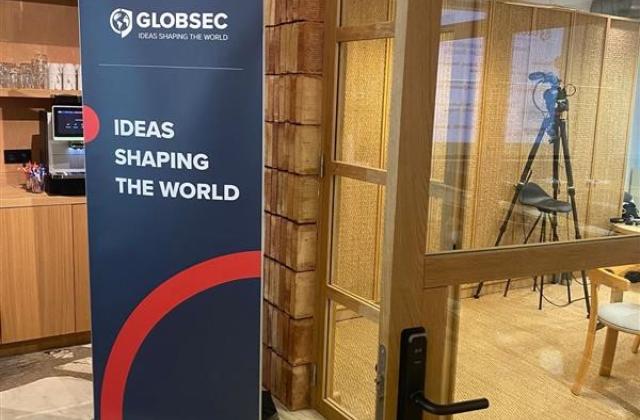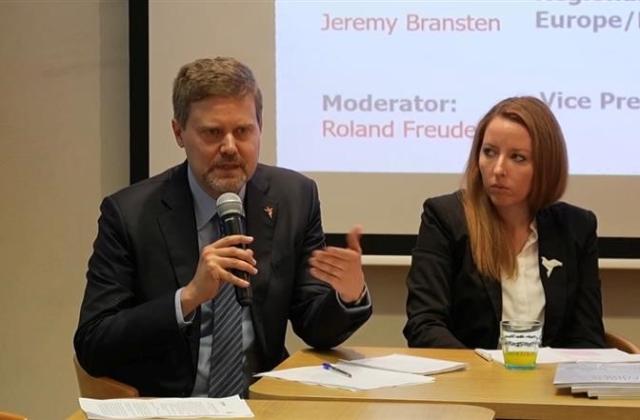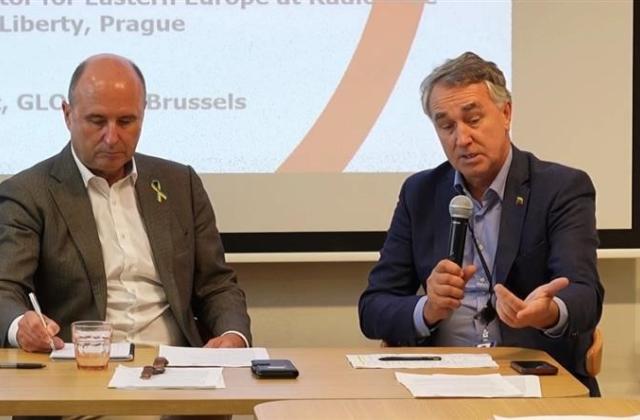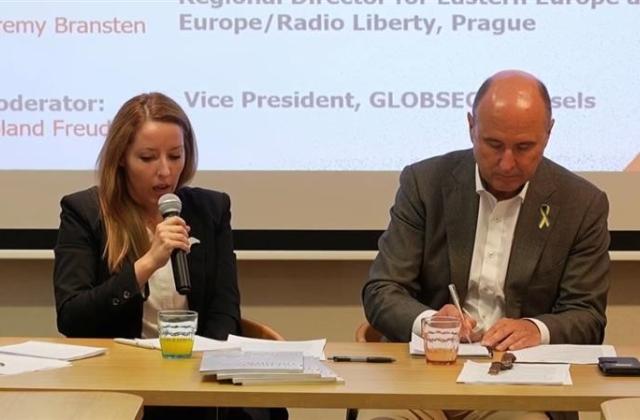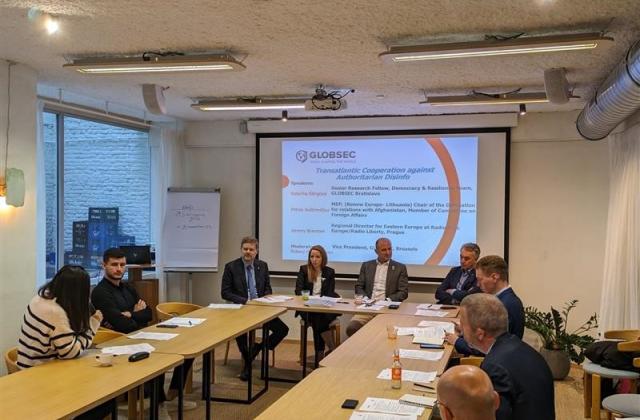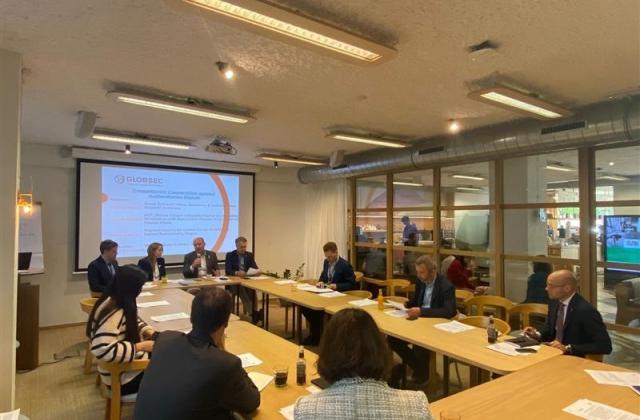Transatlantic Cooperation Against Authoritarian Disinfo
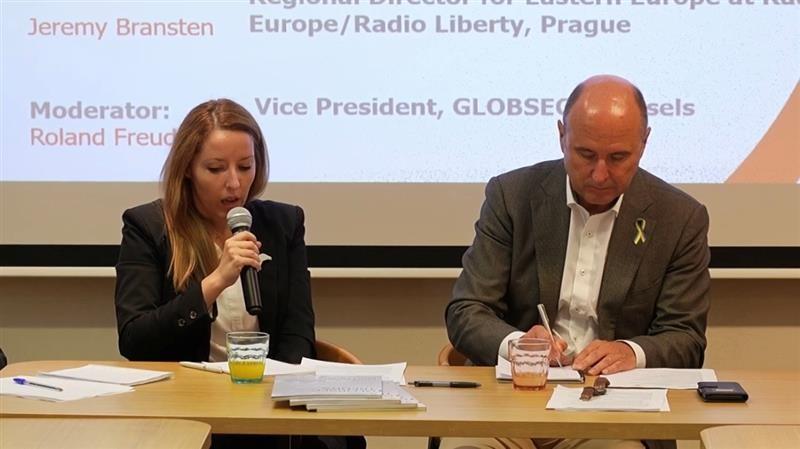
GLOBSEC and the United States’ Mission to the United Nations recently held an event titled “Transatlantic Cooperation Against Authoritarian Disinformation,” with speakers Petras Auštrevičius, MEP, (Renew Europe – Lithuania) Chair of the Delegation for Relations with Afghanistan, Member of Committee on Foreign Affairs; Jeremy Bransten, Regional Director for Eastern Europe at Radio Free Europe/Radio Liberty, Prague; and Katarína Klingová, Senior Research Fellow, Democracy & Resilience Team, GLOBSEC Bratislava. Moderated by Roland Freudenstein, Vice President, GLOBSEC, Brussels, the panelists discussed how Europe and North America could better cooperate in fighting disinformation, the evolving threat of Russian and Chinese disinformation, the impact of disinformation on Central and Eastern European countries, and much more.
The main takeaways are:
- Hostile disinformation, designed to split societies, strengthen extremists, and thereby weaken democracies, has been increasingly applied by authoritarian regimes over the last decade. Especially since the beginning of the COVID-19 pandemic, China has copied Russia’s methods. Now, Russia’s 2022 full-scale invasion of Ukraine has brought another increase in the use of disinformation.
- Hostile disinformation has demonstrable adverse effects on Western democracies. A drastic example of this is the increasing vulnerability of Central European democracies in recent years, as described in GLOBSEC Trends.
- Fighting hostile disinformation begins with the recognition of the problem’s magnitude. This means constant monitoring, analysis, and documentation. The European Parliament’s INGE report on foreign interference is a good step. As such, the EU Commission should include media freedom in its annual rule of law report on EU member states and neighbourhood countries.
- While social media platforms and their misuse have contributed significantly to spreading hostile disinformation, they are also indispensable partners in fighting it. Therefore, smarter regulation and publishing algorithms are necessary, as well as cooperation with Big Tech.
- Fighting disinformation is ultimately a political fight for the hearts and minds of our citizens. Pointing fingers at individuals and organisations, claiming they ‘are on the Kremlin’s payroll’ or victims of disinformation, is often counterproductive. Good strategic communication, with positive narratives about liberal democracy and the West, is paramount. This is a task for both governments and civil society.
- Transatlantic cooperation plays a crucial role in this matter. Institutions such as RFE/RL, NATO’s Center of Excellence, GLOBSEC, and the Atlantic Council are successfully active. However, there must be more transatlantic discussions for the exchange of best practices. This also applies to global exchanges between like-minded democracies around the world, such as Taiwan. In a time where autocracies are teaming up and using disinformation on a massive scale to undermine democracies, democracies must cooperate more closely.
Rewatch the discussion here.
